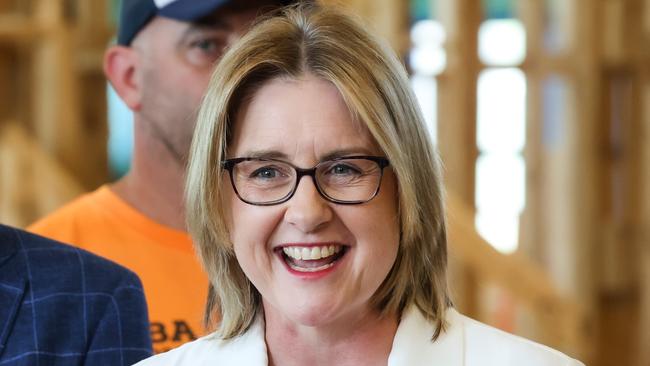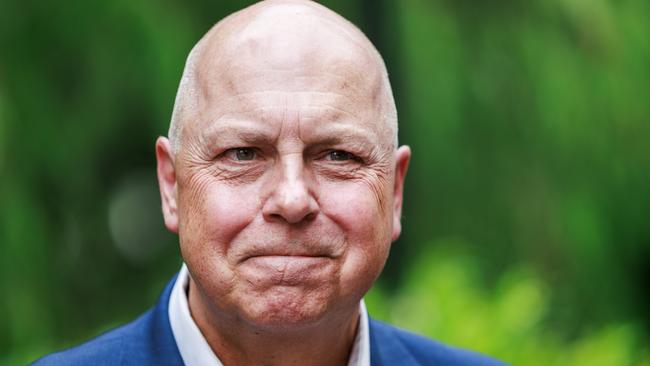
In New York, it must have been very clear to the presidents of the two major credit rating agencies (S&P’s Martina Cheung and Moody’s Robert Fauber) that, given the amount of investment money the US will need for artificial intelligence, energy and manufacturing projects, high-debt woke governments with big deficits who are implementing high cost industry-destructing energy policies will need to be severely downgraded.
Almost certainly the Australian state of Victoria will flash into their minds, because last July the treasurer from that “borrower”, Tim Pallas, went to New York to plea to keep Victoria’s credit ratings.
He presented a set of 2024-25 budget figures which turned out to be complete hogwash. Cheung and Fauber will have noted Tim Pallas has since resigned.
Meanwhile, they may also have noted prior to the Pallas mission to New York former Victorian Premier Jeff Kennett warned the rating agencies their Victorian ratings (AA with a stable outlook by S&P and Aa2 with a stable outlook by Moody’s) were inflated, given the real situation of the state.
Kennett went as far as suggesting agencies might be sued for giving those inflated ratings to Victoria, thereby allowing the state government to borrow recklessly. Kennett correctly believed the 2024 Victorian budget had wildly optimistic assumptions, and of course he was right.
After the Trump speech, if Cheung and Fauber are doing their job, they will have called for updated reports on borrowers like Victoria.

As this was happening in New York the ALP were receiving horrendous opinion polls showing a big slump in party support in Victoria, where Victorian voters have woken up to the fact the ALP government has bundled them into a many-headed crisis of poorly restrained crime, a failing health system, crumbling roads and vast sums being poured into a ‘train to nowhere’ project — partly to keep former CFMEU bosses funding the party.
Worse still, there is also an energy policy which will push up power prices and is designed to make the gas pipe network uneconomic, which will mean skyrocketing gas prices and force vast areas of Victorian industry to shut.
The Kennett threat is becoming very real because what is happening now was totally predictable, given the state government’s policies.
The ALP in Canberra can see the danger. If Victoria is forced to introduce a horrendous budget in May to avoid a credit rating disaster, then this will impact any Federal election held in that month.
The wise heads in the ALP must be warning Anthony Albanese to bring on the election in April, hoping the rating agencies will hold off until the Victorian budget.
Current opinion polls say the ALP will lose many seats in Victoria, but if the election is held after the May Victorian budget, the loss of ALP seats could be catastrophic.
For Victorians, this is a terrible time, and they have to wait until November 2026 before they have a chance to change the government. Four-year parliamentary terms are a disaster when voters make a big mistake.
But, in fairness to Victorian voters, at the last state election the Victorian Coalition opposition was in a mess. A new leader, Brad Battin, looks to have united the party and with proper policies the situation can be vastly improved.
It is conceivable (but very difficult) that a Coalition government in Canberra might agree to help Victoria by linking Federal money to the state and agreeing to rescue polices by supporting the state’s renewable networks to gas-fired power stations.
The gas may come from Victoria’s vast deep underground reserves which requires a permeability test costing around $30m to $40m; Victoria can also tap into the vast Northern Territory-based Beetaloo gas network being established to service the east coast.
All the disastrous restrictions on gas usage in commercial and households must be removed to make the pipe network economic.
The Commonwealth would set the spending agenda for the state, requiring it to vastly improve services, particularly in health education and crime, funding these better services by cutting the state’s administrative bureaucracies.
Of course, from their base in New York, Cheung and Fauber are watching the Trump attempt to revolutionise American government administration in a very similar way.
It’s conceivable that instead of a Commonwealth forcing Victoria to make decisions to improve the situation for its citizens, the rating agencies might force the ALP in Victoria into taking such actions.
For the Victorian government, continuing to borrow vast sums is much easier because future generations can sort out the problems. Sadly for the Victorian government (but not for its citizens) the world is changing.
The next few months will see the attention of the nation and perhaps the world focus on Australia’s second-largest state.





As Donald Trump completed his inauguration speech, the scene was set for two connected Australian dramas, one in New York and one in the inner sanctums of the ALP in Canberra.